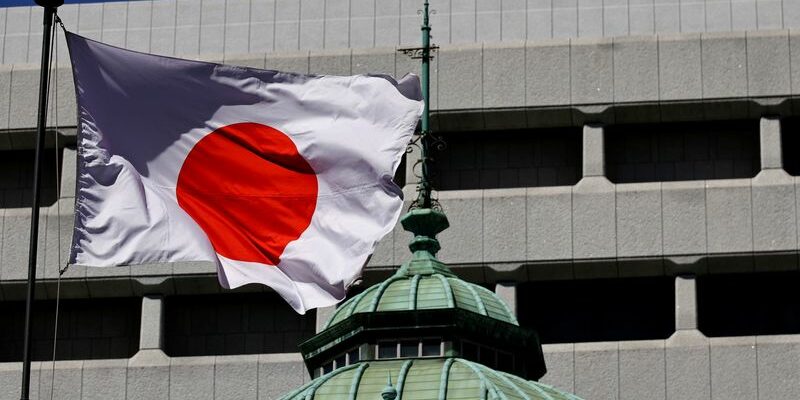by Makiko Yamazaki
TOKYO (Reuters) – Japan’s major banks said on Tuesday they would raise interest rates on ordinary yen deposits for the first time in 17 years following a decision by the Bank of Japan (BoJ), which ended eight years of negative interest rates.
The increases in the cost of credit planned by Mitsubishi UFJ Financial Group, Sumitomo Mitsui Financial Group and Mizuho Financial Group, Japan’s main banks, reflect a major change as the Japanese economy has been hit hard by years of deflation.
At the end of two days of monetary policy debate, the BoJ abandoned its short-term interest rate of -0.1% on Tuesday to set a new target of between 0% and 0.1%, with a remuneration of 0.1% on the excess reserves of financial institutions deposited in its accounts.
In response to this change of direction, MUFG Bank and Sumitomo Mitsui Banking announced in separate press releases rate increases on ordinary deposits in yen from 0.001% to 0.02%, a level not seen since 2016.
These are also the first rate increases since February 2007.
Banks Mizuho and Resona Holdings also said they plan to increase interest rates on ordinary deposits.
“The end of the negative rate policy is positive for the group’s banking activities because it contributes to improving our interest income,” underlined Masahiro Kihara, president and CEO of Mizuho, quoted in a press release.
“The importance of retaining deposits as a source of financing for our activities is increasingly greater,” he added.
Japan’s major banks raised interest rates on long-term deposits late last year, after the central bank in October eased its policy of controlling the 10-year yield curve.
(Reporting Makiko Yamazaki; French version Claude Chendjou, editing by Kate Entringer)
Copyright © 2024 Thomson Reuters
